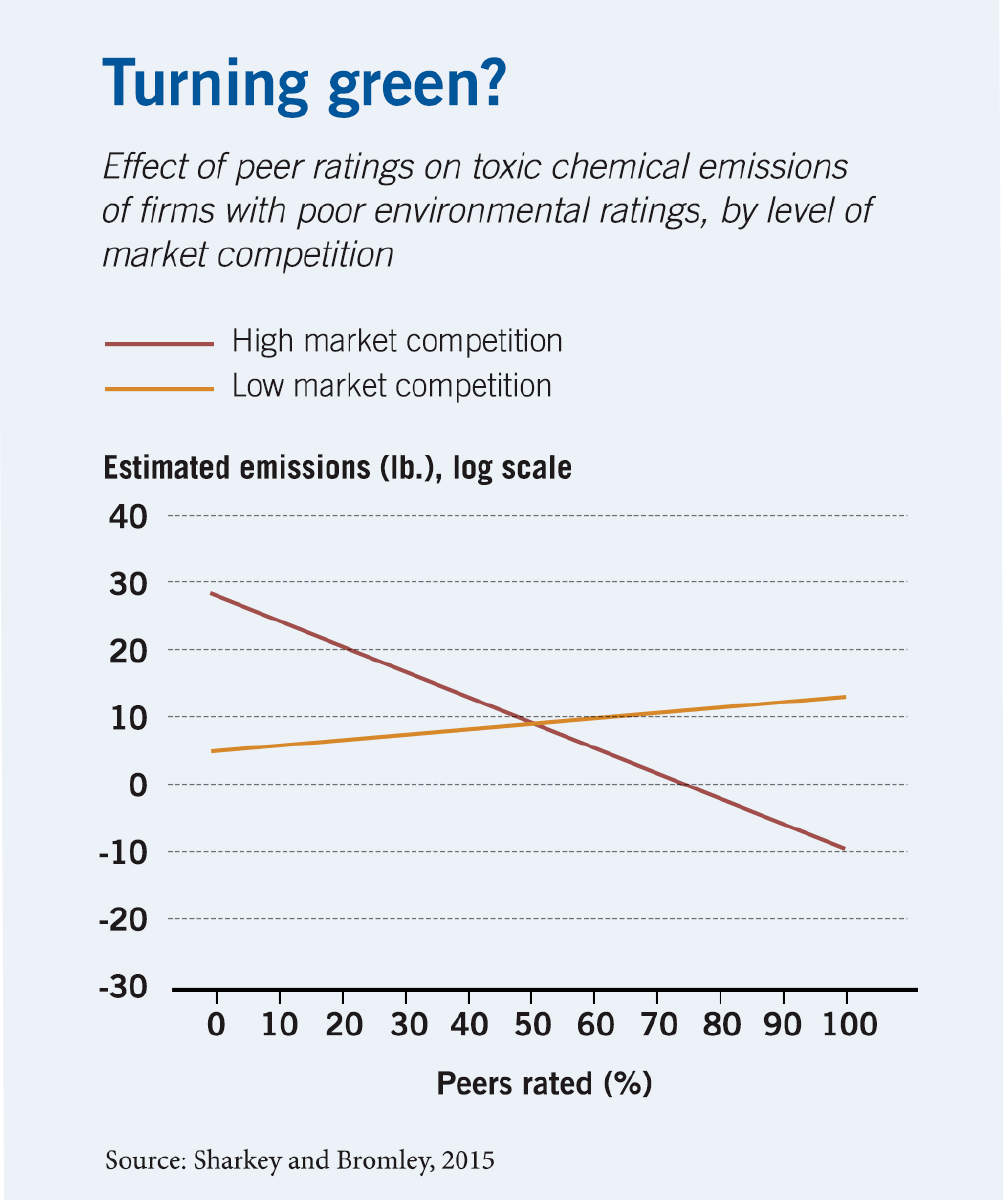
Lopsided Innovation Causes Productivity Slowdowns
Bottlenecks can form when industries innovate at different paces.
Lopsided Innovation Causes Productivity SlowdownsHow corporate peer pressure can help the environment
Companies are more likely to reduce toxic emissions when more of their competitors are rated.

Stakeholders have more options to choose from when more firms are rated, which could intensify the pressure to act.
Amanda J. Sharkey and Patricia Bromley, “Can Ratings Have Indirect Effects: Evidence From the Organizational Response to Peers’ Environmental Ratings,” American Sociological Review, February 2015. Chart reprinted with permission from SAGE Publications. Copyright 2015.

Bottlenecks can form when industries innovate at different paces.
Lopsided Innovation Causes Productivity Slowdowns
Government-supported re-skilling can be good for workers and taxpayers.
Line of Inquiry: Anders Humlum on How to Help More Injured Workers
History suggests inefficient economies benefit the most.
Where Does New Technology Have the Biggest Impact?Your Privacy
We want to demonstrate our commitment to your privacy. Please review Chicago Booth's privacy notice, which provides information explaining how and why we collect particular information when you visit our website.